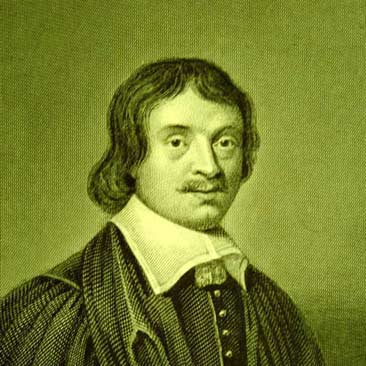
Leighton on Purity of Life
“…That we may be the better provided for this useful, and altogether necessary exercise of cleansing our hearts and ways, and apply it with the greater vigour, let us dwell a little upon that sacred expression in the Psalms, Wherewithal shall a young man cleanse his way? The answer is, By taking heed thereto according to thy word [Psalm 119:9]. In this question, several things offer themselves to our observation.
(1) That without controversy purity of life or conversation is a most beautiful and desirable attainment, and that it must, by all means, begin at the very fountain, that is, the heart; whence, as Solomon observes proceed the issues of life [Proverbs 4:23]. In the beginning of the Psalm, they are pronounced blessed, who are pure or undefiled in the way, who walk in the law of the Lord [Psalm 119:1]. And, in another place, Truly God is good to Israel, says the psalmist, even to such as are of a clean heart [Psalm 73:1]. And the words of our Saviour to this purpose are, Blessed are the pure in heart, for they shall see God [Matthew 5:8].
Nor is the true and genuine beauty of the soul any thing distinct from this purity and sanctity; this is the true image of its great Creator; that golden crown, which most unhappily dropped off the head of man, when he fell: so that, with the greatest justice, we may lament and say, “Woe unto us that we have sinned.” And it is the general design and intention of all religion, and of all its mysteries and all its precepts, that this crown may be again restored, at least, to some part of the human race, and this image again stamped upon them; which image, when fully completed and for ever confirmed, will certainly constitute a great part of that happiness we now hope for and aspire after. Then, we trust, we shall attain to a more full conformity and resemblance to our beloved Head.
“…it is the general design and intention of all religion, and of all its mysteries and all its precepts, that this crown may be again restored, at least, to some part of the human race…”
And even in this wayfaring state, the more deeply and thoroughly our souls are tinctured with the divine flame of charity, joined with this beautiful purity, the more we resemble him who is white and ruddy, and fairer than the sons of men [Song of Solomon 5:10]. The Father of mercies has made choice of us, that we may be holy; the Son of God, blessed for ever, has once for all shed his blood upon earth in order to purify us, and daily pours out his Spirit from heaven upon us for the same purpose.
But to consider the matter as it is in itself – where is the person that does not, even by the force of natural instinct, disdain filth and nastiness, or at least prefer to it purity and neatness of body? Now, as the soul greatly excels the body, so much the more desirable is it, that it should be found in a state of beauty and purity. In like manner, were we to travel a journey, who would not prefer a plain and clean way to one that is rough and dirty? But the way of life, which is not the case in other matters, will be altogether such as you would have it or choose to make it.
“With God’s assistance and the influence of his grace, a good man is at pains to purify his way…”
With God’s assistance and the influence of his grace, a good man is at pains to purify his way; but men of an impure and beastly disposition, who delight to wallow in the mire, may always easily obtain their sordid wish. But I hope that you, disdaining such a brutish indignity, will, in preference to every thing else, give your most serious attention to this inquiry – by what means even young men may purify their way, and, avoiding the dirty paths of the common sort of mankind, walk in such as are more pleasant and agreeable.
(2) Observe that purity is not such an easy matter that it may fall by chance in the way of those that are not in quest of it, but a work of great art and industry. Hence you may also learn, that the way even of young men stands very much in need of this careful attention. It is indeed true, that, in some respect, the reformation of youth is easter and sooner accomplished, in that they are not accustomed to shameful and wicked ways nor confirmed in sinful habits; but there are other respects wherein it is more difficult to reduce that period of life to purity, particularly as it is more strongly impressed with the outward objects that surround it, and easily disposed to imbibe the very worse vices; the examples and incitements to vice beset youth in greater abundance, and those of that age are more apt to fall in with them.
But, whatever may be said of the easiness or difficulty of reforming youth and childhood, it is evident from this question, which, without doubt, is proposed with wisdom and seriousness, that this matter is within the verge of possibility, and of the number of such as are fit to be attempted. Youth is not so headstrong, nor childhood so foolish, but by proper means they can be bent and formed to virtue and piety.
Notwithstanding the irregular desires and forwardness of youth, and that madness whereby they are hurried to forbidden enjoyments, there are words and expressions that can sooth this impetuosity, even such, that by them youth can tame and compose itself; by taking heed to its ways, according to thy word, that matchless word, which contains all those particular words and expressions, not only that are proper to purify and quiet all the motions and affections of the soul, but also, by a certain divine power, are wonderfully efficacious for that purpose. And what was said of old concerning Sparta and its discipline, may be, with much greater truth, asserted of the divine law and true religion, that it had a surprising power to tame and subdue mankind. And this leads us directly to the answer of the question in the text; By taking heed thereto, according to thy word.
“If any of you then aspire to this purity of mind and way, you must, with all possible care, conform yourselves, and every thing about you, to the instructions and precepts of this divine word.”
This is not, therefore, to be done according to our philosophy, but according to thy word, O eternal Light, Truth, and Purity! The philosophy of the heathens, it is true, contains some moral instructions and precepts that are by no means despicable; but this is only so far as they are agreeable to the word of God and the divine law, though the philosophers knew nothing of it. But the only perfect system of moral philosophy, that ought to be universally received, is the doctrine of Christianity. This the ancient fathers of the primitive Church have asserted and fully proved, to the honour of our religion. But those who spend their lives in the study of philosophy can neither reform themselves nor others, if nature be but a little obstinate; and their wisdom, when it does its utmost, rather conceals vices than eradicates them: but the divine precepts make so great a change upon the man, and, subduing his old habits, so reform him, that you would not know him to be the same.
If any of you then aspire to this purity of mind and way, you must, with all possible care, conform yourselves, and every thing about you, to the instructions and precepts of this divine word. Nor think this a hard saying; for the study of purity has nothing in it that is unpleasant of disagreeable, unless you think it a grievance to become like unto God.
Consider now wherein consists that true wisdom which deserves to be pursued with the most earnest study and application, and whereby, if you will, you may far exceed those that are your superiors in years. Be ambitious to attain the advantage mentioned in the text, and consequently the condition upon which it depends, for they are inseparably connected. Reconcile your minds to a strict attention to your ways, according to the divine word; and by this means, which is a very rare attainment, you will reconcile youth and even childhood to the purity here recommended. Account the divine word and precepts preferable to your daily food; yea, let them be dearer to you than your eyes, and even than life itself.

Robert Leighton (1611-1684) was a Scottish scholar, Principal of the University of Edinburgh, and Archbishop of Glasgow in the Church of Scotland. His writings were held in high regard by following generations of evangelicals. This excerpt comes from his ‘Theological Lectures.’



